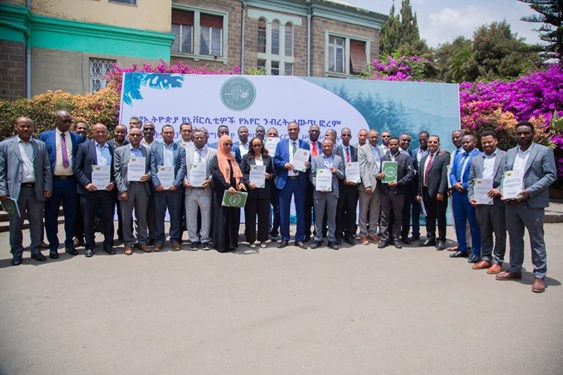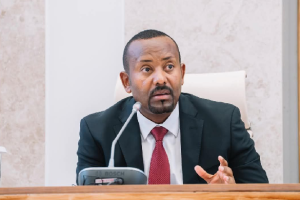
Universities play an important role in the fighting against climate change through a variety of means, including research, education, community service, and policy lobbying. They can help to address this worldwide problem by doing research and innovation, including cutting-edge research.
By supporting interdisciplinary research that integrates knowledge from environmental science, economics, social sciences, and engineering to address complex climate concerns, they can offer interdisciplinary approaches to mitigate climate change.
In addition, some universities offer leadership programs that are centered on sustainability and climate action, preparing the next generation of leaders to address these issues. More importantly, higher education institutions can incorporate climate change topics into their curricula across a variety of disciplines, ensuring that students are informed about environmental challenges and solutions. In particular, they offer training programs and workshops to equip students and professionals with the skills needed to work in sustainability and climate-related fields.
Most higher education institutions have a mission and a program for community engagement and outreach initiatives and projects. They use these programs to create public awareness campaigns, which are critical for engaging local populations in climate change discussions and promoting sustainable habits. Furthermore, universities’ role includes forming partnerships and partnering with local governments, corporations, and non-governmental organizations (NGOs) to create community-based solutions to climate change.
Hence, by using their particular strengths in research, education, community engagement, and policy advocacy, universities have the potential to make important contributions to climate change mitigation. Their efforts not only assist in alleviating the effects of climate change, but also prepare future leaders to continue this important work.
Universities can also assist in achieving the United Nations’ Sustainable Development Goal (SDG). The Sustainable Development Goal 13 (SDG 13) focuses on mitigating climate change and its consequences. The aim of this Goal stresses the urgent need for global action to combat climate change, which poses a substantial danger to the environment, economics, and cultures around the world.
The objective also makes considerable room for universities to play an important role in achieving Sustainable Development objective 13 (SDG 13), which focuses on mitigating climate change and its consequences. Higher education institutions play a significant role in climate change research and studies, including causes, impacts, and mitigation options. Their studies can influence policy decisions and contribute to the development of new technologies for the mitigation of climate change.
Recognizing these facts, Ethiopia has demonstrated its commitment to the SDGs in general, and goal 13 of climate change mitigation in particular. The country, through its broader vision and environmental protection works, demonstrates a comprehensive approach to combating climate change through policy frameworks, community engagement, sustainable practices, and international cooperation.
Although universities have many climate change mitigation programs that help the country, they are not fully linked and integrated with one another. They all work autonomously and in accordance with their responsibilities.
Hence, the Ethiopian Ministry of Planning and Development established the “Ethiopian Universities Climate Change Forum” to strengthen higher education’s dedication and desire to reverse the detrimental effects of climate change in a collaborative manner. The Ministry also signed a Memorandum of Understanding (MOU) with 47 universities to promote climate resilience in society and the nation.
The “Ethiopian Universities Climate Change Forum” will be chaired by the Ministry of Planning and Development, while the Ministry of Education and Addis Ababa University serve as vice-chairs. Thirteen of the 47 higher education institutions that signed the agreement have chosen representatives to the general assembly.
According to Ethiopian Ministry of Planning and Development Minister Fitsum Assefa (PhD),
“Universities play an irreplaceable role in the solution to all problems, including climate change.” Furthermore, our universities have the potential to address the issues caused by climate change. As a result, they should collaborate closely with the government, particularly policymakers, to help develop and implement policies based on accurate knowledge about the situation.”
More crucially, the Ministry arranges the Forum to ensure the university’s irreplaceable role in climate change mitigation. As a result, this meeting will bring colleges together around a common goal of reducing climate change and protecting the environment.
She also urged universities, through the form, to play an indispensable role in Ethiopia’s efforts to develop a climate-resilient economy.
Ministry of Planning and Development State Minister Seyoum Mekonnen stated that climate change cannot be addressed by a single institution; it requires the efforts and collaboration of many parties. As a result, this Form is critical for universities’ research and development efforts as Ethiopia begins the process of establishing a climate-resilient economy. Besides, Universities play an important role in identifying knowledge-based climate finance.
Similarly, Ethiopian Ministry of Education (MoE) Academic Affairs Lead Executive Officer Eba Mejana (PhD), noted that climate change poses significant risks to agriculture, food security, and national economic growth. Higher education institutions are expected to play an important role in translating the Sustainable Development Goals, particularly Goal 13, which calls for immediate action to combat climate change and its consequences. As a result, the forum is crucial in this regard.
He called for greater collaboration among universities and stakeholders to develop research-driven, community-based interventions that enhance Ethiopia’s climate resilience and sustainable future.
Addis Ababa University Interim President Samuel Kifle (PhD), echoed this sentiment, emphasizing that effective climate mitigation requires coordinated efforts among all stakeholders. He called on universities and their communities to leverage their research, innovation, and technological expertise to advance green development and national prosperity.
It is true that the Ethiopian Universities Climate Change Forum will assist in utilizing the research capabilities, educational resources, and community engagement of higher institutions in addressing the challenges posed by climate change. Their work is imperative to sustainability, not only advances SDG 13 but also equips future generations to develop creative solutions for climate change mitigation efforts.
Through cooperation with many stakeholders, universities may also significantly influence national efforts to prevent climate change and improve resilience. Therefore, the ministry and other relevant entities should so endeavor to improve the Form structure and manage in a sustainable manner.
BY EPHREM ANDARGACHEW
THE ETHIOPIAN HERALD WEDNESDAY 12 MARCH 2025





